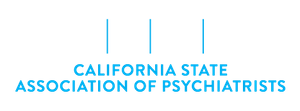It’s the time of the year when California’s legislators start to consider new bills to introduce. CSAP is considering many different ideas for possible sponsorship and/ or co-sponsorship in 2022. Below are some examples of ideas that have been received this fall by CSAP’s state advocates Shaw Yoder Antwih Schmelzer & Lange (SYASL). No doubt there will be more. In addition to these ideas, what happens next on homelessness, parity, workforce development, Incompetent to Stand Trials (ISTs), Cal-AIM, suicide prevention, the realization of $4 billion to expand and improve screenings for school age children, and the first appropriation to expand bed space in the continuum of care in California will continue to be at the forefront of debate in Sacramento. Have thoughts on any of the suggestions below? Have a suggestion that you would like to make? Just email Paul Yoder of SYASL at paul@syaslpartners.com.
Require hospitals and counties to share LPS data
Summary of Concept / Idea: Counties do not always identify individuals who have been on multiple short‐term holds or ensure that these individuals received the ongoing care they needed. One reason for this gap in care is that counties do not have access to confidential state‐managed data about the specific individuals who have been placed on holds in the past. (California Lanterman-Petris-Short – LPS – Audit- Link-pps. 34-38). Some counties are exploring collaboration with hospitals to improve data collection, but these efforts are still nascent, and hospitals may be reluctant to share data unless they are mandated to share. In some instances, data collected is not at the client level and only for the previous fiscal year, which does not provide real-time information to support goals of care coordination and referral to treatment. This proposal would support California LPS Audit recommendation for systematic approaches to identifying individuals placed on multiple involuntary holds in their county‑designated facilities, obtaining information about those individuals, and connecting them to services that support their ongoing mental health.
Require follow-up care for individuals who have undergone 5150 holds
Summary of Concept / Idea: Often, individuals under 5150 who are brought to private facilities are not connected with any services and are released back into the community. The Emergency Medical Treatment and Labor Act (EMTALA) – a federal law that requires anyone coming to an emergency department to be stabilized and treated, regardless of their insurance status or ability to pay, but since its enactment in 1986 has remained an unfunded mandate – stipulates that hospitals must provide the patient with a plan for appropriate follow-up care that is geographically and financially accessible to the patient as part of the discharge instructions. It does not, however, state who must provide the post-discharge services, or make the hospital ensure that follow-up care is obtained. This issue was also highlighted in the LPS Audit Report, but the follow-up recommendations only specified increasing treatment capacity and improved data sharing.
Expand definition of “grave disability”
Summary of Concept / Idea: Many people experiencing homeless have untreated mental illness, and each year many see their condition worsen, or may even die, because their mental illness rendered them incapable of seeking routine medical care for a treatable physical condition. This recommendation is to expand the definition of “grave disability” under LPS to also include a condition in which a person, as a result of a mental health disorder or chronic alcoholism, was unable to provide for their medical treatment. SB 516 (Eggman), which is a two-year bill still eligible to move in 2022, would make steps in this direction; however, the chairpersons of the Assembly Health and Judiciary Committees still need convincing. These two committees will hold a joint hearing on December 15 that Senator Eggman will also attend.
Crisis Receiving Facilities / Crisis Stabilization Units
Summary of Concept / Idea: Crisis receiving facilities (aka crisis stabilization units) are ill defined under state law which has restricted their availability throughout the state, thus making it the least available service within the crisis continuum (e.g. call centers, mobile teams, stabilization units). The proposal would be to define this type of care and extend care and observation authority from 24 hours to 72 hours in order to allow adequate time to engage patients in treatment.
Allow EMS to provide Buprenorphine to patients
Summary of Concept / Idea: Expanding access to Medical Assisted Treatment (MAT), is an evidence-based strategy for lessening the impacts of overdose and treating opioid use disorder. Under current State rules, paramedics cannot provide buprenorphine to clients. In New Jersey, paramedics have been authorized (via state-level Executive Order) to carry buprenorphine to treat acute withdrawal symptoms after patients have been revived from an opioid overdose with Naloxone (in what we understand to be a first in the nation program). This use could also serve as an immediate transition to longer-term treatment.

